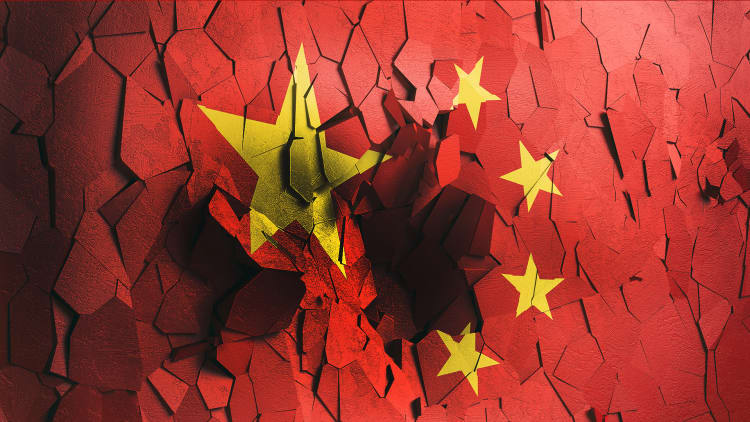Beijing's efforts to prop up a slowing Chinese economy, in the middle of an ongoing trade war with Washington, is pushing the government to introduce previously untested policies, according to a senior analyst at Moody's Investors Service.
While official data have indicated that China's economy held up for much of last year, cracks have started appearing in recent months as production metrics and export orders fell.
After decades of breakneck growth, the world's second-largest economy was already facing domestic headwinds even before the escalation in trade tensions with the U.S. But the tariff war has piled on additional pressure on China's economy.
"We see growth in China slowing to 6 percent," Christian Fang, an assistant vice president-analyst at Moody's, told CNBC's "Squawk Box" on Thursday. "I think the bigger issue for us is that policy trade-offs have increased in China. On the one hand, there is this broader campaign of de-risking, deleveraging, but policy also seems to be shifting slightly towards growth — supporting growth."
"Some of the tools in the policy response they have meted out are untested," he added. "Tax cuts, for instance, we don't know what the businesses and the consumers — how they would respond to the tax cuts."
In last few months, Beijing has announced several measures aimed at propping up its economy.
On Wednesday, state media reported that China will be granting more tax breaks to small firms. The measures include substantial cuts in business income tax rates and an increase in the tax threshold, with the aim of saving small and micro firms a total of 200 billion yuan ($30 billion) each year, according to Xinhua.
The People's Bank of China said last Friday it will cut the amount of reserves that banks are required to hold by 1 percentage point this month — that means banks would have more money to lend to customers. In December, the Chinese central bank introduced a new tool to encourage commercial banks to give out more loans to smaller firms.
The measures to spur growth, which theoretically could saddle the economy with more debt, is creating a trade-off with Beijing's efforts to clean up its financial system. Experts have said that the ongoing trade war with the U.S. is forcing China to retreat from its own anti-debt battle while others have suggested the country hasn't done enough to stimulate the economy.
"Since mid-2018, China's authorities have eased policy through targeted liquidity measures, taxation changes and infrastructure spending, which will shore up growth," Fang and his colleagues at Moody's wrote in a Jan 10. report.
"However, designing and implementing policy that simultaneously buffers the shock of the US trade tariffs and potential further restrictions while continuing deleveraging and derisking without triggering too sharp a slowdown in growth, poses complex trade-offs," they added.
The U.S. and China on Wednesday concluded a three-day round of trade talks in Beijing, which analysts said revealed signs of modest progress.
WATCH: Is China's growth story over?



